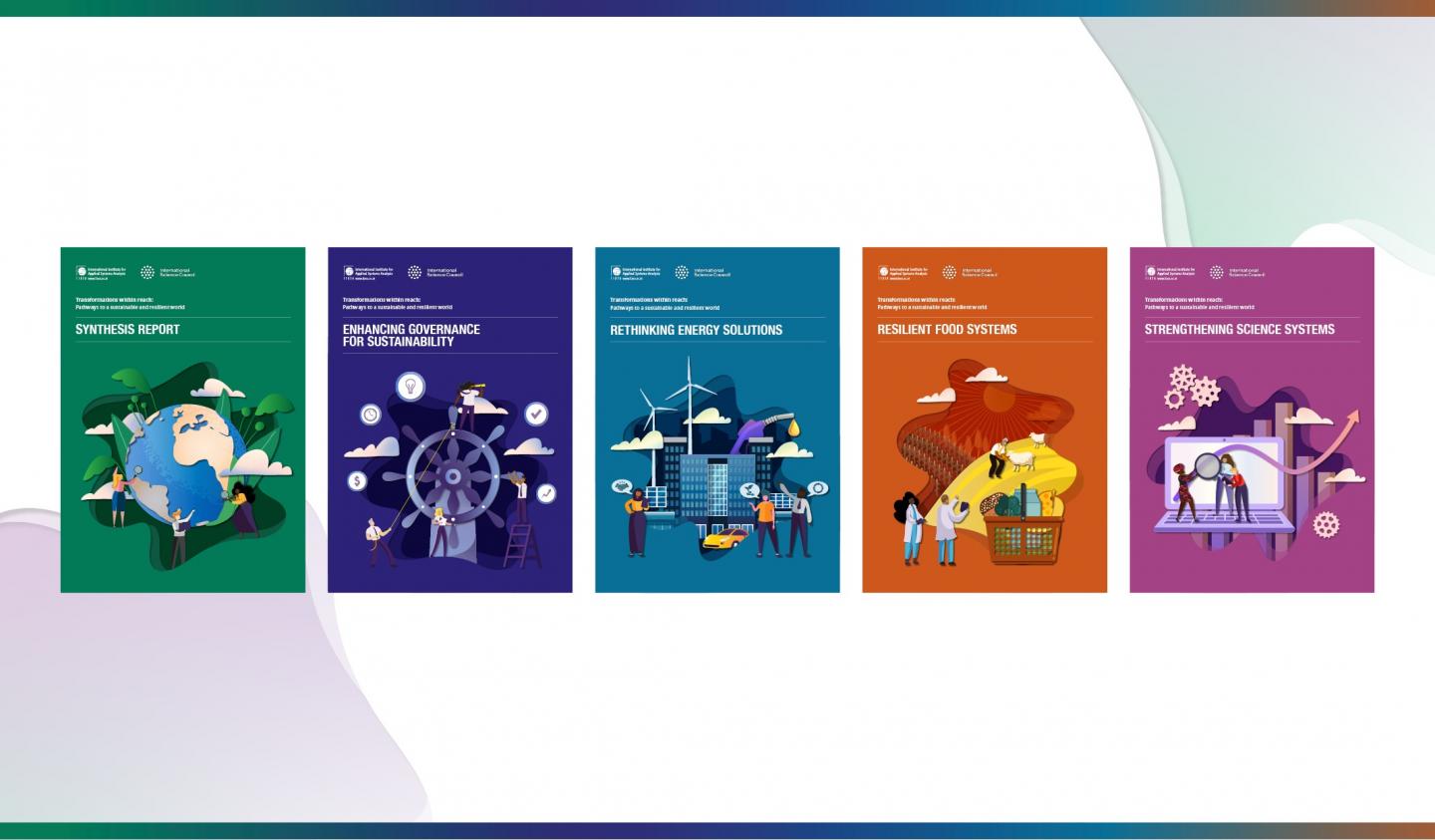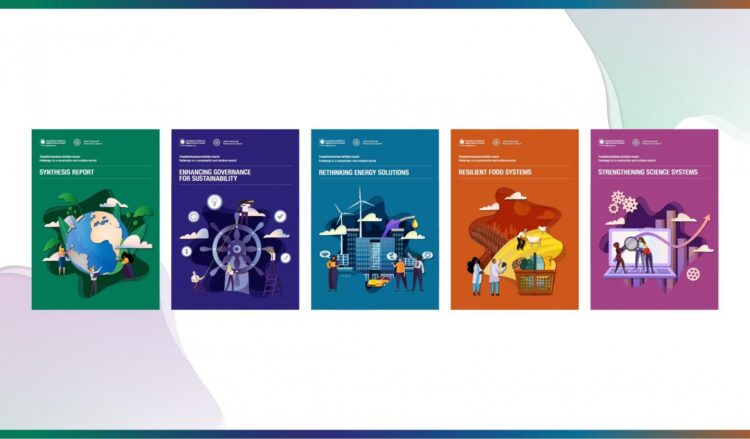
Credit: © Adam Islaam | IIASA
It is clear that COVID-19 has drastically changed our world, but how can we use the lessons learnt to build a more resilient and sustainable future? The International Institute for Applied Systems Analysis (IIASA) and the International Science Council (ISC) have drawn on the combined strengths and expertise of the two organizations to help find a way forward.
The COVID-19 pandemic, which has impacted almost every aspect of our lives over the past year, is a warning: We need to step back from business-as-usual onto new transformative pathways to reach the Sustainable Development Goals and the commitments of the Paris Agreement. Systems science is ideally positioned to address global impacts and harness opportunities brought about by COVID-19, as only systemic thinking and approaches can ensure that investment in post-COVID-19 recovery efforts is leveraged to embed the structural changes required for long-term sustainability and resilience with the multiple dividends that these will confer.
To address emerging issues and provide science based insights to make this possible, IIASA and the ISC brought together experts from all over the world through the IIASA-ISC Consultative Science Platform “Bouncing Forward Sustainably: Pathways to a post-COVID world”. The platform serves as a global hub for consultation, deliberation, and collaboration among scientists, policymakers, and representatives from civil society around four key interconnected themes: Governance for Sustainability, Strengthening Science Systems, Resilient Food Systems, and Sustainable Energy. The outputs of the initiative, which are informed and supported by an advisory board under the patronage of the former Secretary-General of the United Nations, H.E. Ban Ki-moon, includes a series of reports with key messages and recommendations for policymakers, which will be launched at an event on Tuesday, 26 January:
- Synthesis Report: This report is a synthesis of the four thematic reports produced as part of the IIASA-ISC Consultative Science Platform and presents eight recommendations that have the potential to enable systemic transformations and structural changes. Operationalizing these recommendations would facilitate a more sustainable and resilient future for humanity, as we recover from COVID-19. The authors, being conscious of the need for greater equity and resilience in a new sustainable future, have also sought to be practical by prioritizing the transformative changes that seem most feasible, can be applied early, and that could make a significant contribution to a sustainable recovery.
- Enhancing Governance for Sustainability: The authors suggest that global cooperation is enhanced in mission-oriented ways to drive governance reform at all levels. This crisis may constitute an opportunity to enable higher levels of change in international governance arrangements, particularly with a view to mainstreaming a risk perspective and advocating for more reflexive, transformative governance, thus adding new dynamics to ongoing global governance reform initiatives. The report’s recommendations include increasing awareness and understanding of compound and systemic risks across governance arrangements at multiple scales to be better prepared for similar crises in the future; moving systemic resilience center-stage; and devising and implementing a science-based tracking mechanism to assess the degree of alignment of COVID-19 recovery packages with the ambitions of the Sustainable Development Goals while focusing on generating systemic resilience.
- Strengthening Science Systems: This report contains a number of recommendations grouped under five interrelated transformative changes aimed at ensuring a more effective response of the science system to future global crises. These changes address the need to strengthen transdisciplinary research on critical risks; enhance the diffusion of knowledge within the science system; increase the capacity of the science system to respond rapidly with high-quality research; improve the science-policy interface; and enhance public understanding and trust in science. The report also identifies three axes of simultaneous improvement to move science systems to a new frontier: reacting more rapidly through increased agility; enhancing the quality of output for greater reliability; and linking more effectively to policy and to the public for increased relevance.
- Rethinking Energy Solutions: Three areas were identified for immediate action. All three are designed to address the drivers of demand and consumption through measures like remote working, digitalization, and the reshaping of urban spaces and their use; maximizing sustainable energy independence at local and individual levels through, for instance, decentralized renewable energy solutions and efficiency enhancing measures; and influencing behavior towards responsible consumption such as encouraging new trends in mobility, less material consumption, and sharing vs. ownership models.
- Resilient Food Systems: The report argues that the emphasis on efficiency, which has to a large extent been driving the evolution of food systems, needs to be counter-balanced by a greater systemic emphasis on resilience and equity concerns. As illustrated by the pandemic, this entails expanding the scope and reach of social safety nets and protection schemes. It also includes assessing, and where necessary adjusting supply chains and trade in their capacity to absorb and adapt to a multitude of risks. Human and planetary health perspectives should be integral aspects of food system policies, regulations, and incentive structures going forward. Innovation capacities need be secured during the recovery to meet rising demands placed on the food system and enhance preparedness for future risks and sustainability challenges, supported by an emphasis on collaboration and strengthening of the science-policy interface for contextual solutions.
###
For further information and to access, read, and share the reports, please visit https:/
Contacts:
Researcher contact
Leena Srivastava
IIASA Deputy Director General for Science
Tel: +43 2236 807 500
[email protected]
Luis Gomez Echeverri
Emeritus Research Scholar
Tel: +43 2236 807 611
[email protected]
Press Officer
Ansa Heyl
IIASA Press Office
Tel: +43 2236 807 574
Mob: +43 676 83 807 574
[email protected]
About IIASA:
The International Institute for Applied Systems Analysis (IIASA) is an international scientific institute that conducts research into the critical issues of global environmental, economic, technological, and social change that we face in the twenty-first century. Our findings provide valuable options to policymakers to shape the future of our changing world. IIASA is independent and funded by prestigious research funding agencies in Africa, the Americas, Asia, and Europe. http://www.
Media Contact
Ansa Heyl
[email protected]
Original Source
https:/





